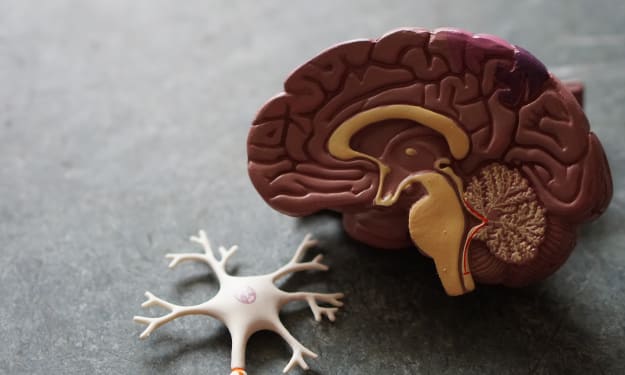The Incredible Influence of Music on the Brain
Melodies for Longevity

The Incredible Influence of Music on the Brain
In a world filled with enchanting melodies of music, there is more to this art form than meets the ear. Recent breakthroughs in neuroscience have uncovered the captivating impact that music has on our brains. From listening to music to playing musical instruments, the symphony within our minds is an extraordinary phenomenon. In this article, we will embark on a captivating journey to explore the fascinating world of how music influences our brains and the myriad benefits it offers to our mental prowess.
The Melodic Symphony Within: Music and the Brain
Music has been an integral part of human culture for centuries, and its influence on brain development, learning, mood, and health cannot be overstated. Contrary to popular belief, music's magic is not solely processed in the right hemisphere of the brain. Recent findings have shown that music engages various regions of the brain simultaneously, creating a symphony of neural activity. When we listen to music, our brains light up like stars in the night sky, deciphering melodies, rhythms, and emotions in an instant.
Music has the power to evoke deep emotions within us, triggering our reward system and releasing feel-good chemicals like dopamine. This explains why certain songs have the ability to transport us to specific memories or uplift our spirits. The brain's response to music goes beyond mere auditory processing, as it involves the visual and emotional centers as well. This intricate interplay of brain regions not only enhances our musical experience but also has profound effects on our overall cognitive abilities.
The Brain's Full-Body Workout: The Power of Playing Music
While listening to music is an enchanting experience, playing musical instruments takes the brain's fireworks to a whole new level. When musicians play their instruments, multiple areas of the brain are engaged simultaneously, creating a full-body workout for the mind. The visual, auditory, and motor cortices work in harmony, orchestrating a complex sequence of brain activity that strengthens various cognitive functions.
Playing a musical instrument requires coordination between our hands, eyes, and ears. This coordination activates the brain's motor cortex, which controls our voluntary movements. As musicians read sheet music or improvise, their visual cortex decodes the symbols and translates them into meaningful musical patterns. The auditory cortex processes the sound produced by the instrument, allowing musicians to create harmonies and melodies. The intricate and interconnected brain activity during musical performance strengthens neural pathways, leading to benefits beyond musical abilities.
Building Bridges and Boosting Brain Power
One striking difference between listening to music and playing it lies in the fine motor skills required for the latter. Playing a musical instrument engages both hemispheres of the brain, fostering a stronger corpus callosum, the bridge between the two hemispheres. This enhanced communication allows information to flow more efficiently and creatively between brain regions.
The strengthened corpus callosum in musicians enables them to excel in problem-solving, academic pursuits, and social interactions. It facilitates the transfer of information between the analytical left hemisphere and the creative right hemisphere, resulting in improved cognitive abilities. Studies have shown that musicians tend to have better verbal memory, spatial reasoning, and mathematical skills compared to non-musicians. The ability to seamlessly integrate information from both hemispheres gives musicians a unique advantage in various cognitive tasks.
The Conductor of Memory: The Impact of Music on Recall
Crafting and interpreting the emotional content of music requires higher levels of executive function in musicians. This skill is crucial for planning, strategizing, and attention to detail, leading to improved memory functions. Musicians are skilled at creating and retrieving memories effectively, employing multiple tags for each memory, similar to a well-organized search engine.
Research has shown that learning and playing music can enhance memory processes, particularly in the domain of verbal memory. Musicians have been found to have a larger hippocampus, the brain region responsible for memory formation and retrieval. This structural difference, coupled with the intricate neural connections developed through musical training, contributes to superior memory abilities. Whether it's remembering complex musical compositions or recalling everyday information, music plays the role of a conductor in enhancing our memory capabilities.
The Unique Power of Music: Unraveling the Mysteries
The mental prowess exhibited by musicians raises the question of whether it stems from innate intelligence or if playing music truly offers unique benefits. While intelligence certainly plays a role, research indicates that the artistic and aesthetic aspects of music learning differ from other activities. Randomized studies have consistently shown that music learning enhances brain activity more than other comparable pursuits.
The benefits of playing music extend beyond the cognitive domain. Music has been found to have therapeutic effects on mental health, reducing stress, anxiety, and depression. It also promotes social bonding and emotional expression, providing a medium for individuals to connect and communicate. The unique power of music lies in its ability to tap into our emotions, stimulate our brains, and transcend language and cultural barriers.
Conclusion: Let the Symphony Resonate
The enthralling connection between music and the brain opens doors to an entirely new realm of exploration in neuroscience. Whether it's the breathtaking fireworks in our minds when we listen to music or the symphonic harmony that arises when musicians play their instruments, the influence of music on our brains is a captivating wonder. As we continue to unlock the secrets of our minds through groundbreaking research, one thing remains certain – the mental benefits of playing musical instruments resonate deeply with our core essence, enriching our lives in extraordinary ways. So, let the music play and the fireworks ignite as we celebrate the captivating symphony within!
"Music is a higher revelation than all wisdom and philosophy." Ludwig van Beethoven
About the Creator
Manula Tharanga
I'm a passoinate writer who wants to educate people to make this world better.






Comments
There are no comments for this story
Be the first to respond and start the conversation.